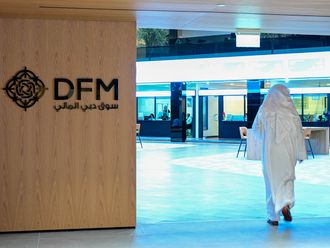I’m often asked how do I do it. By that, I’m asked how I manage a business, a family and community activities, and still find the time to do the things I like doing. While concepts like time management and starting my day early certainly play a part, for me, it has come down to marrying two very simple principles.
One of which I learnt from a Saudi national who headed a diverse multi-country organisation, and the other from a course I took in Dubai with a South Indian teacher.
A few years ago, the Saudi national, Samer Kurdi, coined a phrase, which he called “EO 360”, when he assumed the role of Global Chair of the Entrepreneur’s Organization. He was the Organisation’s first Global Chair from the Middle East and set the tone with his opening address.
When Kurdi went on to explain what “EO 360” meant, it was a message that resonated with many of us as entrepreneurs. Kurdi said that we wore four distinct responsibilities as entrepreneurs, which he called “My Business,” “My Family,” “My Community” and “Myself.”
Wearing these hats often mean we are conflicted by which direction we want to move in. In pursuit of wanting to succeed in business, we’ve many a time neglected our family, forgotten about our community, and not even realised that we as an individual exist. As a result, we often end up on a guilt trip that never seems to end. This guilt can eventually lead to stress and from there on things can easily spiral out of control.
The easy solution or advice to give anyone is talk about creating an ideal work-life balance. But in an age where work follows us around — thanks to all the gadgets we own — we struggle to reach that balance. Alternatively, you could find you can’t concentrate at work when you realise you have a family issue, which as mundane as it may be, sits at the back of your head as a distraction.
Several years ago, I felt a new awareness when I took course called the ‘Rhythm of Life’. During that course, the teacher, Sanjeev Krishnan, spoke of one simple concept that most of us overlook. That is the concept of acceptance.
In our day-to-day lives, we end up getting stressed by all sorts of things around us, but it is only when you understand why you’re stressed, that you realise, you need not be. Often times, we worry about things that we have no control over or that has already occurred.
This is where Krishnan’s lesson of acceptance kicks in. His thinking is that once you’ve encountered a situation, if you start thinking about it by going through various what-if scenarios in your mind, you end up at a dead end. Instead of constructively using your mind, you end up worrying more, which only adds to your stress.
If instead, you realise what’s happened has happened and you can’t do anything to change it, you then learn to accept the situation. You concentrate on how to move on. You get the opportunity to think about what to do next. Suddenly your mind is a lot clearer and you understand that worrying about it only means you’re going backwards.
If you start to combine Krishnan’s lessons of acceptance and apply it to Kurdi’s “EO 360” concept, you learn that wearing the multiple hats — of my business, my family, my community and myself — can be managed if you learn to accept what is happening on all fronts instead of stressing yourself on all those fronts. If you go into all of these situations with a clear mind, you learn to apply yourself better, and as a result manage your time better.
I know that I have been following these principles for several years now. But there have been instances when I have taken on commitments when it seemed like the worst possible time to accept new or additional responsibilities. However, finding a way to manage this balance by accepting what is happening on these multiple fronts has led to me being a better leader and entrepreneur.
The writer is a former President of the Entrepreneur’s Organization (UAE Chapter). He currently serves as a Governance Director and is a part of the EMEA Regional Council for the Entrepreneur’s Organization.












